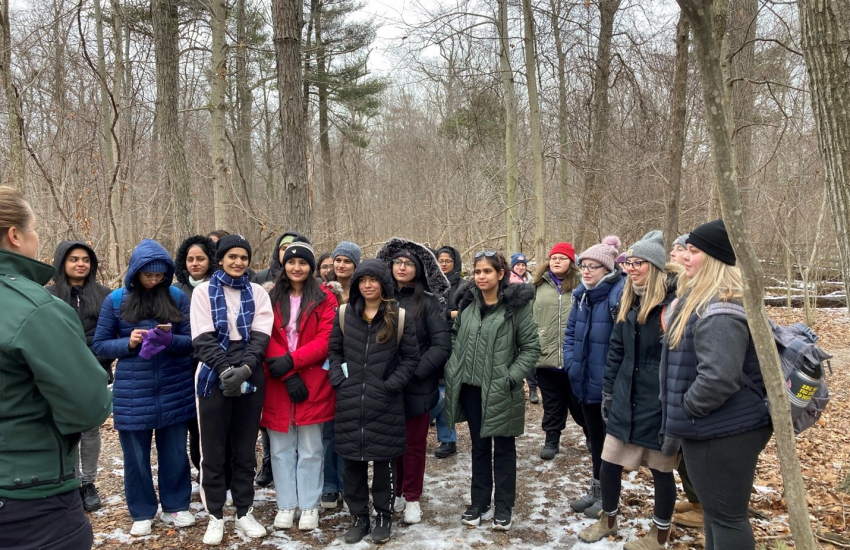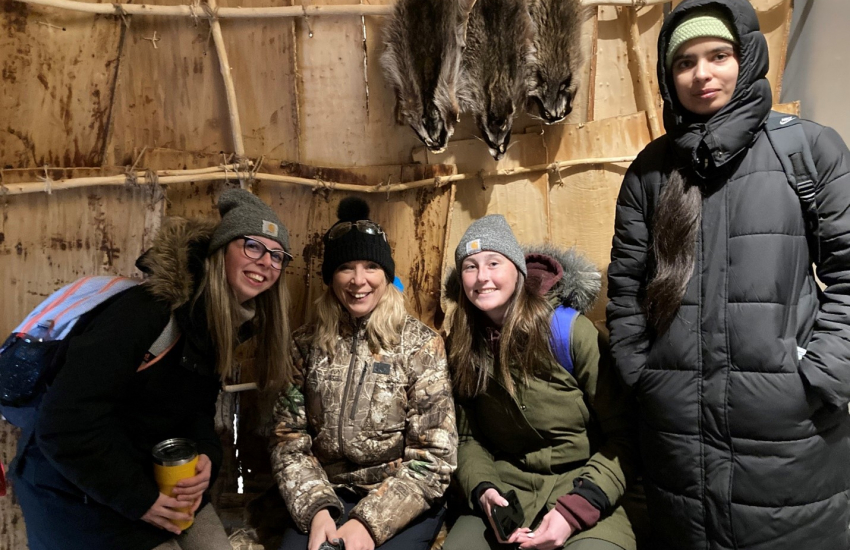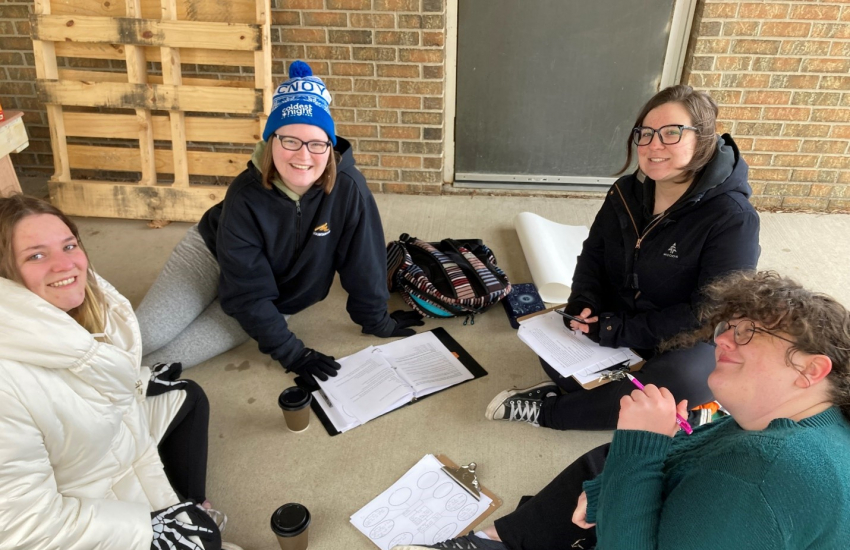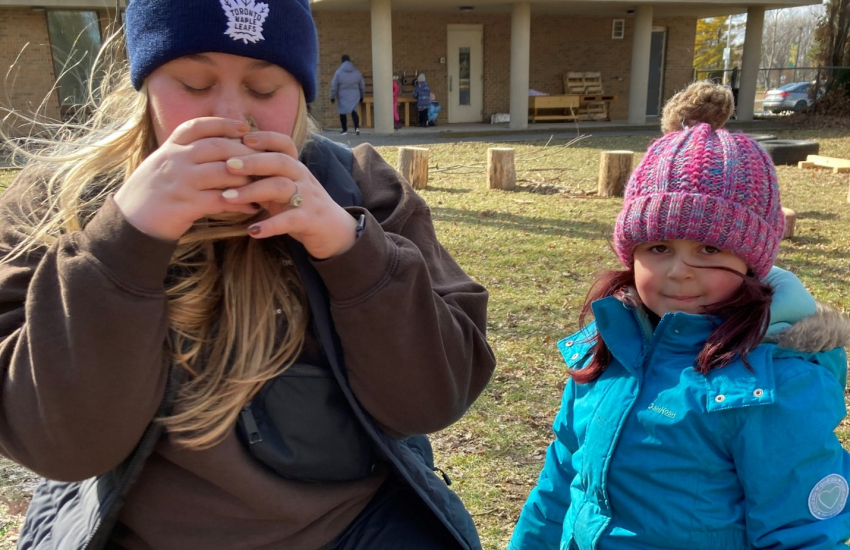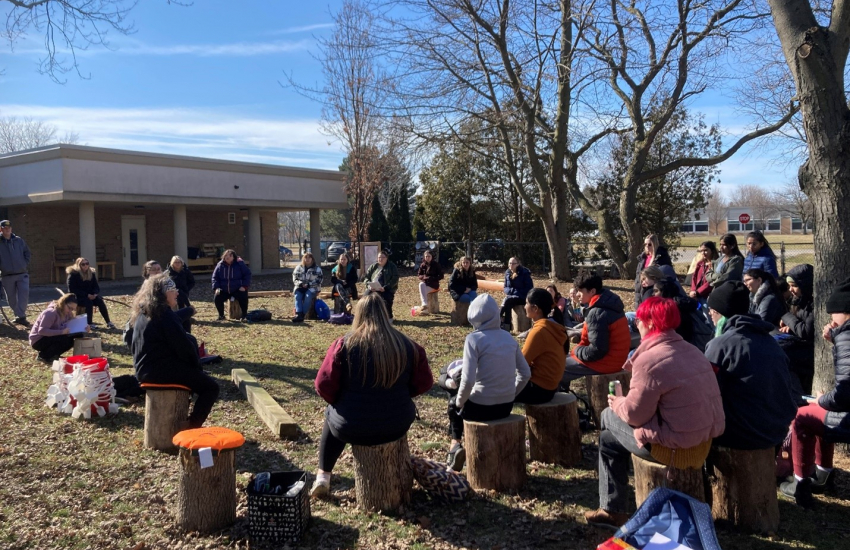
When I received the invitation to be involved in the Outdoor Pedagogy ECE Faculty Research Project, I had no idea where this journey would take me and who would be with me on this journey. Six months have passed, and I was filled with emotion yesterday as I prepared for the last Outdoor Education class of the winter 2023 semester with my ECE Year 2 students. This class became the catalyst to really start moving the theory of outdoor pedagogy into practice. Prior to the delivery of this course for only the second time I had held some classes outdoors and secured a designated outdoor space on the campus. Part way through the semester I was able to create a partnership with an elementary school to walk kindergarten classes over for hour periods outdoors with the ECE students. Our students also visited (3) local childcare centres and one elementary school kindergarten, all outdoors.
According to the Merriam-Webster dictionary, "serendipity is the faculty or phenomenon of finding valuable or agreeable things not sought for". Well as a kindergarten child who was engaged in digging in the Outdoor Education class said yesterday "I think we might find gold." He could not have been closer to the truth. Before we started the course in January 2023, I prepared students that we would be striving to have all our classes outdoors for the course and I suggested that they have all-weather clothing to brave all elements of weather. I received peculiar looks and a bit of resistance. Students commented that they were new to Canada and experiencing winter for the first time, comments included that they were not outside people.
The first class came and the ECE students met me at the ECE Outdoor Lab with a mixed reaction of enthusiasm and hesitancy. I brought a kettle, coffee, tea, and hot chocolate as an ongoing staple for our outdoor breaks. The students met the challenge and on a continuum of low effort, mid-effort, and high effort in their participation efforts. As each week passed from week 01 to week 09, the efforts grew and the enthusiasm grew. We met our goal of having each class outside and having one bus field trip to a Provincial Park 45 minutes away. We had a hike and a nature discovery walk and a campfire with roasted hotdogs and toasted marshmallows for lunch. This foundational class had walked with me on a journey to really “walk the talk” of outdoor pedagogy. I will always be grateful for the opportunity to co-learn with these very capable and competent ECE Year 2 students that were able to put many of their ECE skills into practice in this course. We were able to show the pedagogy of teaching outdoors was as valuable as being indoors.
This is where the serendipity of what students found within themselves through being outdoors with an ECE Faculty who was part of the research project led by Dr. Beverlie Dietze, peers, and kindergarten and childcare children, and educators grew. Students made statements like “there is no class like this class we have outdoors.” They commented on how they had improved their capacity to be outdoors in all types of weather.
Marissa said "I will start to do more outside with the children I work with, and start using my imagination to allow more adventurous play and not be so worried about making messes. Also, be present in the moment with the children." Chantelle stated, "That being outside has had a very positive effect on me. Therefore, if we as adults need this, then imagine how the children must feel. Doing our classes outside has shown me that if I’m outside more I sleep better. I can concentrate and even retain information better."
The reciprocity of being outdoors as an ECE Faculty is extremely rewarding. I have been able to be part of experiential learning with my students to level the playing field between faculty and student. In working with ECE students, we are vulnerable in that we are not only articulating theory from a textbook or on a power point but we are making visible the theory into practice. I would encourage all ECE Faculty across Canada to make a step towards being outdoors with your ECE students. The benefits will astound you and I predict will make you re-evaluate the teaching of ECE only indoors in our typical college classrooms.
Submitted by: Brenda Huff, BPA - Human Services, RECE, AECEO.C, ECE Professor & Program Coordinator, AEI Coordinator
St. Clair College Chatham Campus, Outdoor Pedagogy ECE Faculty Research participant Researcher - Dr. Beverlie Dietze, Okanagan College
